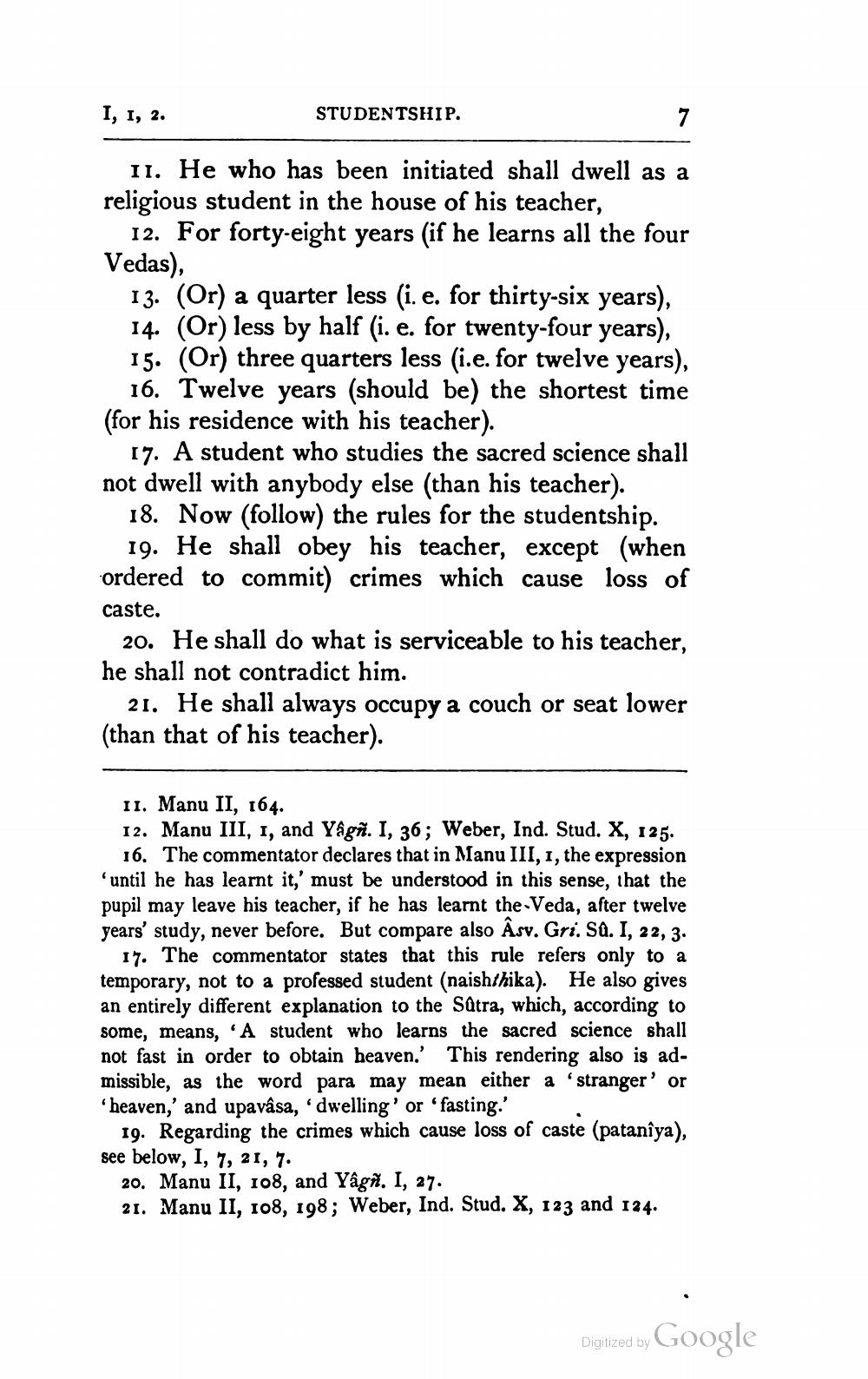________________
I, I, 2.
STUDENTSHIP.
11. He who has been initiated shall dwell as a religious student in the house of his teacher,
12. For forty-eight years (if he learns all the four Vedas),
13. (Or) a quarter less (i. e. for thirty-six years), 14. (Or) less by half (i. e. for twenty-four years), 15. (Or) three quarters less (i.e. for twelve years),
16. Twelve years (should be) the shortest time (for his residence with his teacher).
17. A student who studies the sacred science shall not dwell with anybody else (than his teacher).
18. Now (follow) the rules for the studentship.
19. He shall obey his teacher, except (when ordered to commit) crimes which cause loss of caste.
20. He shall do what is serviceable to his teacher, he shall not contradict him.
21. He shall always occupy a couch or seat lower (than that of his teacher).
11. Manu II, 164. 12. Manu III, 1, and Yaga. I, 36; Weber, Ind. Stud. X, 125.
16. The commentator declares that in Manu III, 1, the expression until he has learnt it,' must be understood in this sense, that the pupil may leave his teacher, if he has learnt the Veda, after twelve years' study, never before. But compare also Asv. Gri: SV. I, 22, 3.
17. The commentator states that this rule refers only to a temporary, not to a professed student (naishthika). He also gives an entirely different explanation to the Sätra, which, according to some, means, A student who learns the sacred science shall not fast in order to obtain heaven. This rendering also is admissible, as the word para may mean either a stranger' or heaven,' and upavâsa, dwelling' or 'fasting.'
10. Regarding the crimes which cause loss of caste (patanîya), see below, I, 7, 21, 7.
20. Manu II, 108, and Yâgn. I, 27. 21. Manu II, 108, 198; Weber, Ind. Stud. X, 123 and 124.
Digitized by Google




